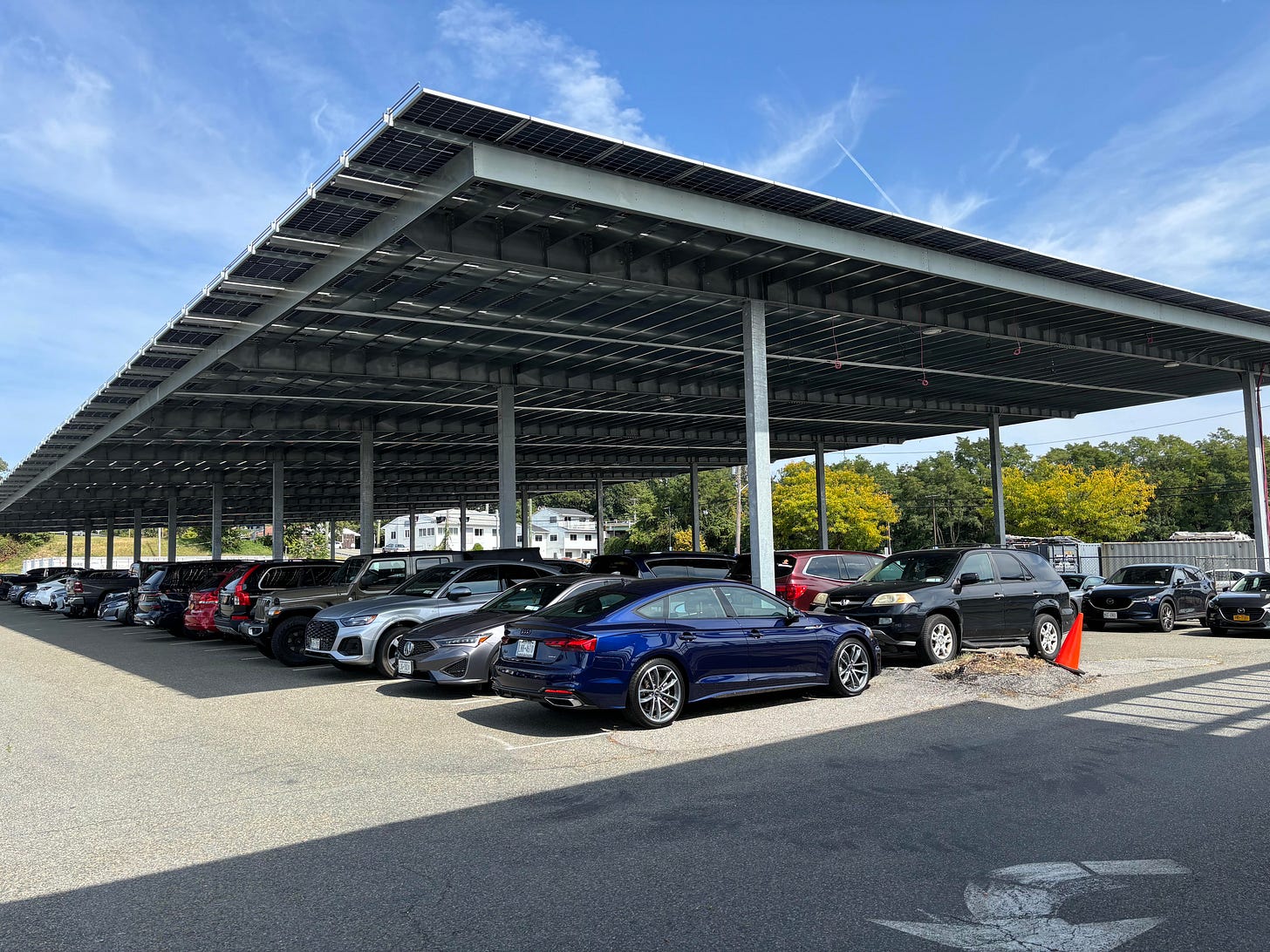Trump's "Big Beautiful Bill" could get ugly for the village's sustainability efforts.
Croton's Sustainability Czar urges homeowners to lock in their solar contracts without delay--if they qualify. (Unfortunately, most do not.)
As most readers will know, the Trump administration’s “Big Beautiful Bill” is reaching a critical point in Congress as House and Senate negotiators move towards the final package of tax cuts and other measures.
But according to Croton’s Sustainability Czar (Lindsay Audin, chair of the village Sustainability Committee) passage of the bill could have dramatic consequences for the village, and for many clean energy minded villagers. That’s because Congressional Republicans are determined to slash or even phase out entirely tax credits and deductions that favored the adoption of solar power, electric vehicles, and other climate-friendly measures.
On the chopping block are provisions of the Internal Revenue Code, especially sections 25D and 48E, that currently provide tax credits for residential and village solar installations, respectively. On top of that, Republicans in Congress seem determined to also cut out section 30D, the New Clean Vehicle Credit, which provides a tax rebate of up to to $7500 on the purchase of electric vehicles.
An article in yesterday’s Washington Post outlined just how freaked out both the clean energy industry and sustainability advocates are about these developments, including some trusted Trump allies like Elon Musk. The article points out:
“The massive tax and immigration bill advancing through Congress could raise energy prices in much of the United States and make it harder for American companies to compete globally on artificial intelligence and manufacturing as a result of deep cuts to federal support for wind and solar power, batteries and other renewable technologies, a wide range of experts warned on Sunday.”
And it’s not just tree-hugging sun worshippers who are alarmed:
Notably, some conservative voices, including the chief policy officer of the U.S. Chamber of Commerce, fossil fuel advocate Alex Epstein and onetime Trump ally Elon Musk, have vented their frustration about the bill’s potential impact on energy prices and American business.
“A massive strategic error is being made right now to damage solar/battery that will leave America extremely vulnerable in the future,” Musk wrote on X on Sunday.
Here in Croton, the loss of section 48E funds could affect some current projects, including plans to install a solar canopy at the DPW parking lot and solar panels on the roof of the Harmon firehouse. That’s because to lock in the tax credits, construction must start within 60 days of the passage of the law, or probably about late September, to avoid the cutoff which could begin as early as January 2026.
While the DPW project is on time and work should begin in September, installing the solar panels on the Harmon roof could be trickier because the roof must first be repaired at a likely cost of about $100,000, which is not covered by $425,000 in clean energy funds the village has received.
(The solar canopy in the Croton-Harmon train station parking lot was constructed by private money, and is now complete, so it is not affected.)
And under one version of the bill, both section 25D and 48E credits could dry up at the end of this year, meaning that homeowners would need to have their projects under contract and underway no later than this fall to be sure to get the credit.
It remains possible that the cuts will go into effect later than that. But as Audin puts it, “It’s never going to get better, it’s only going to get worse. You’ve got to move pretty quickly.”
Even Sustainable Westchester’s new Residential Solarize program will be of little help if these credits are phased out. Moreover, while section 25D can currently save homeowners up to $6000 on a $15 - $20,000 solar installation, in our area only about one in ten of homeowners who inquire about solarizing their homes actually qualify to do so—in part because of how many trees we have and the states of their roofs, which must be in excellent shape for panels to be installed.
Our local Congressman, Mike Lawler, voted for the draconian House version of the bill. But for those who think that electing a more climate friendly, Democratic Party candidate as president in 2028 might be the solution, not so fast. If such an individual took office in January 2029, it would probably be late in that year before the current legislation—very likely to pass in a form close to what is being proposed now—could be overturned and the tax credits begin flowing again. Meanwhile the planet continues to roast at historic levels as each year goes by.
“There was a golden age of American sustainability under Biden,” Audin comments. “That is over.”
***********************************************************************************************************
To share this post, or to share The Croton Chronicle, please click on these links.
Comments policy: Please be polite and respectful at all times.







The only green Trump supports is on a golf course or big dollar bills in his pocket. Alas.